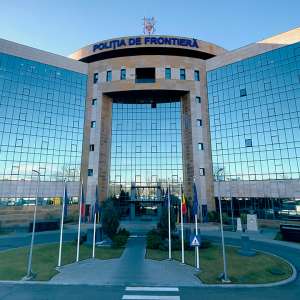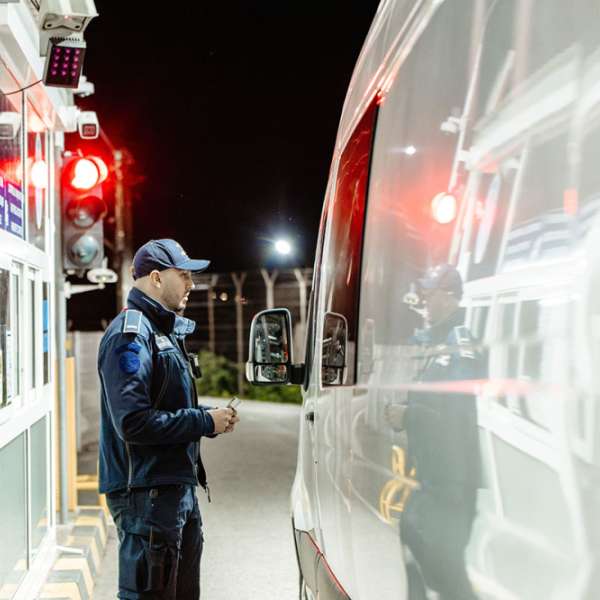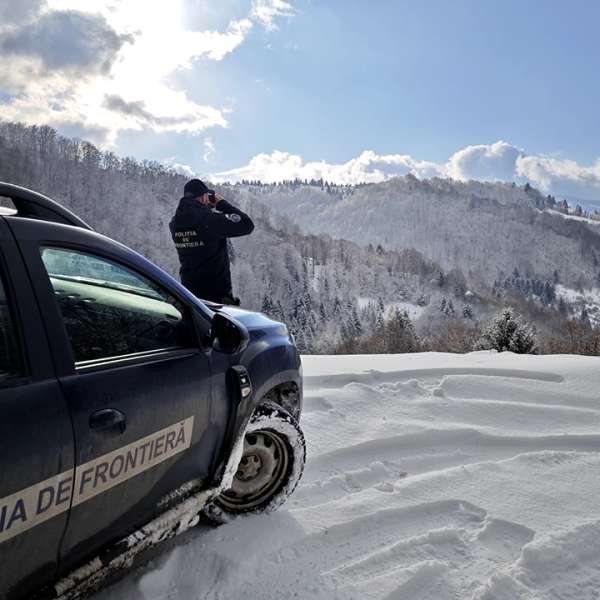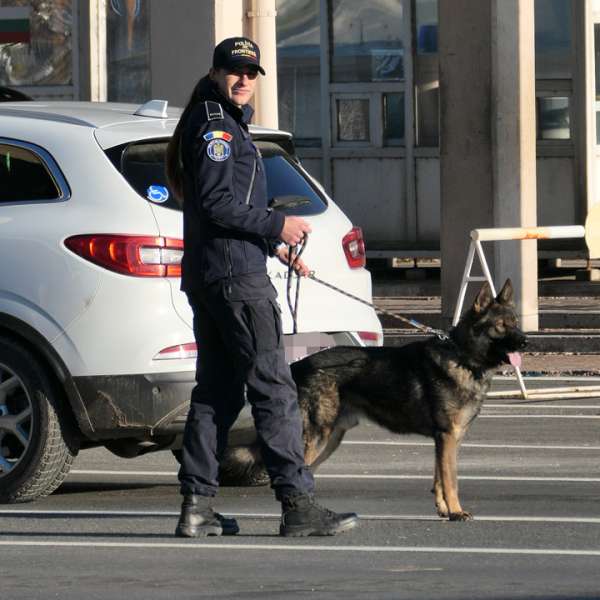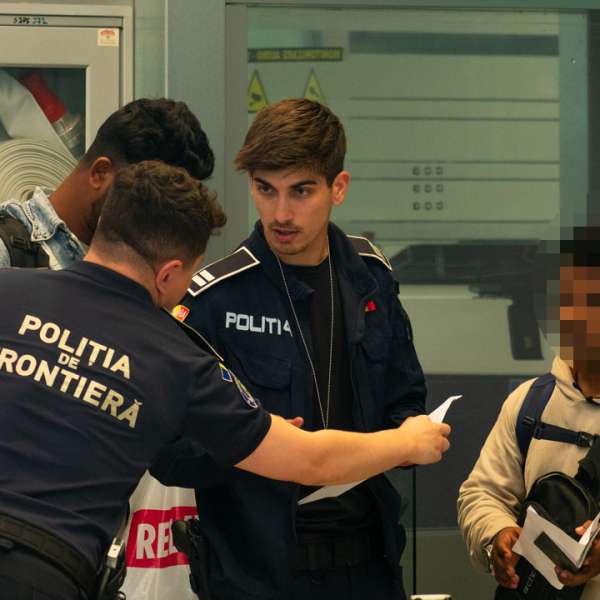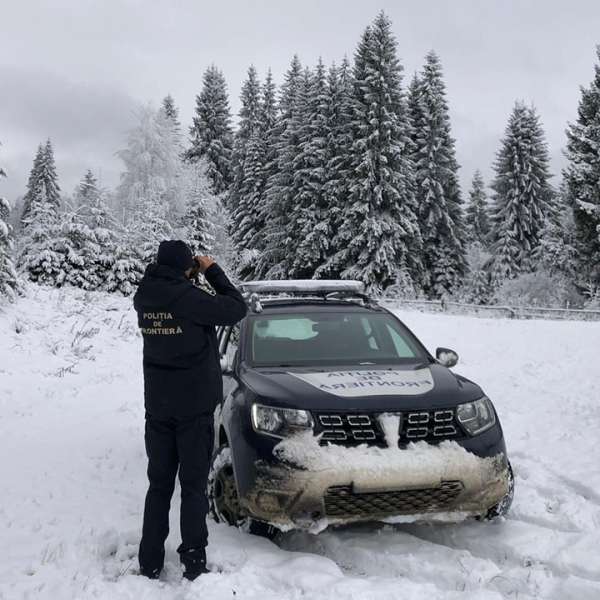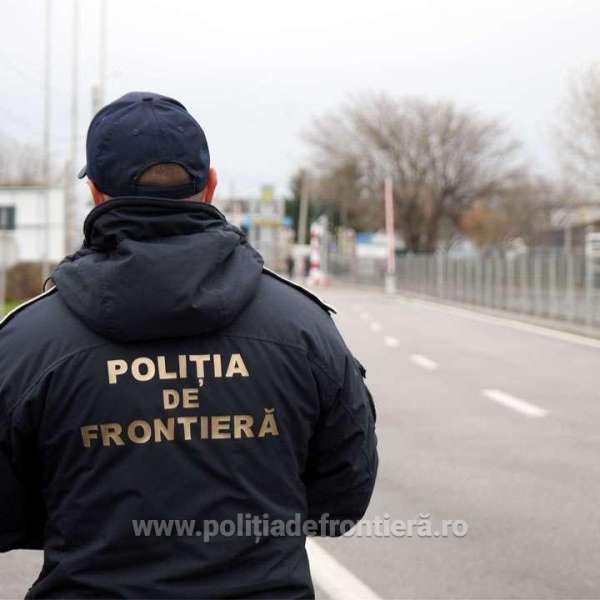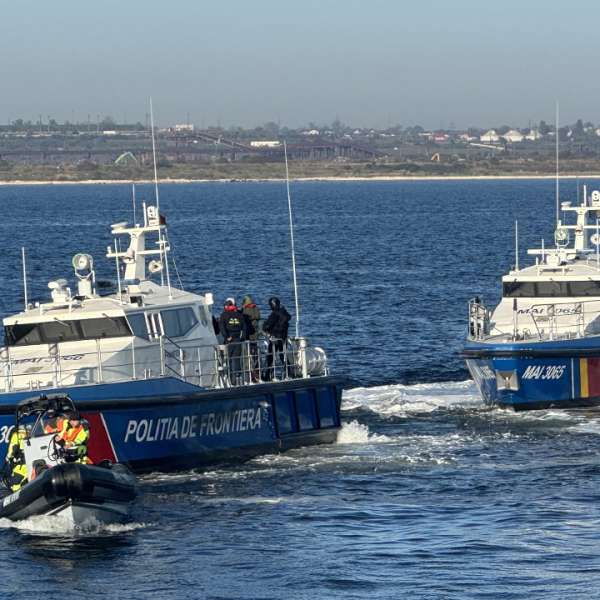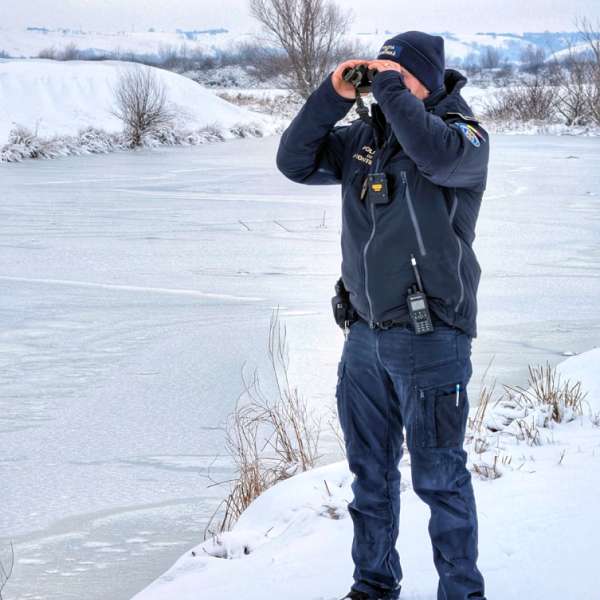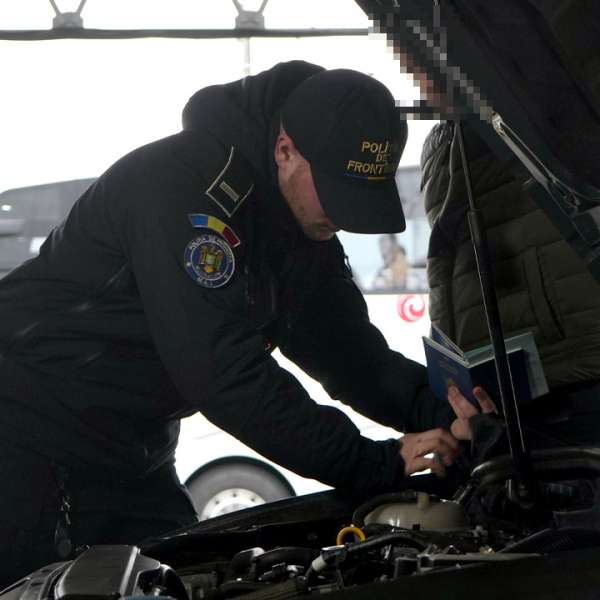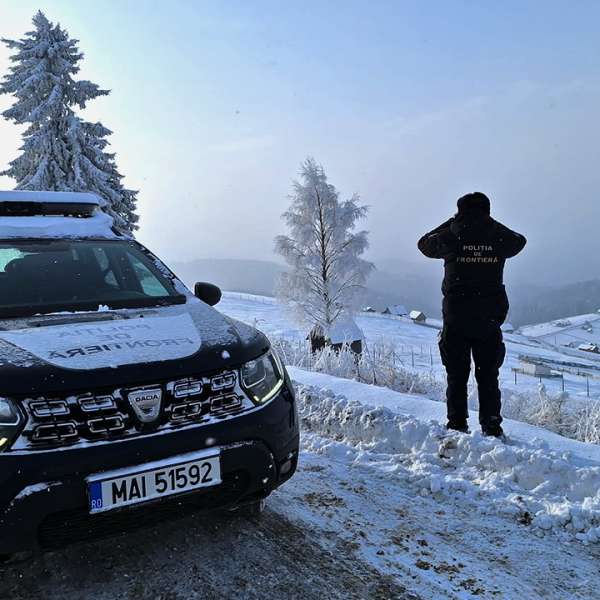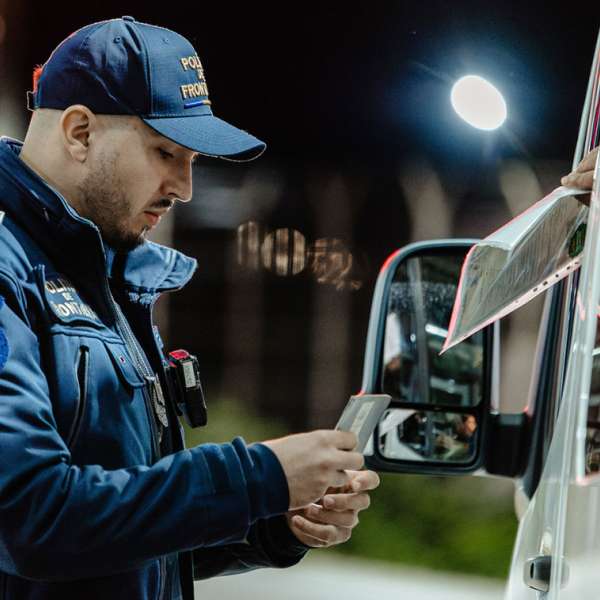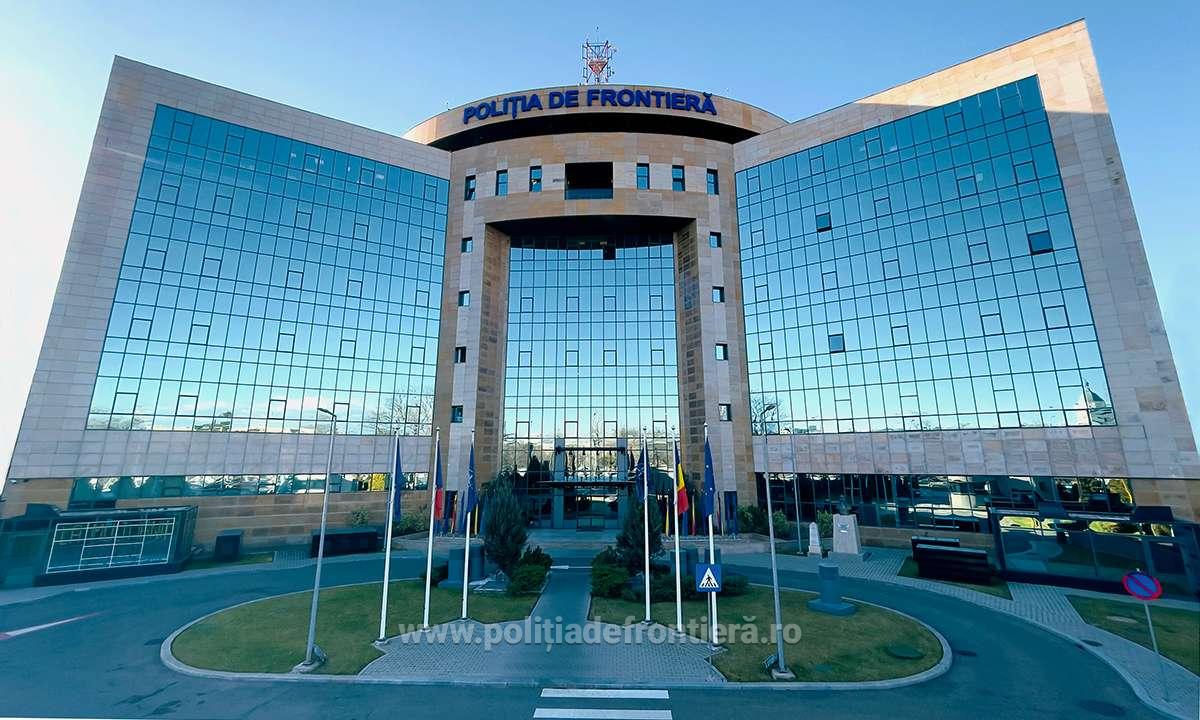
In 2022, the Romanian Border Police pursued the fulfillment of the duties conferred by the national legislation in force, both in terms of optimizing border surveillance and control, as well as effectively combating cross-border crime. Through the activity carried out, the Romanian Border Police aimed to achieve the following objectives:
- Fluidization of cross-border traffic by supplementing the personnel working at the border control, using the crossing point infrastructure to its maximum capacity and using mobile control equipment in order to increase the processing capacity;
- Management of illegal migration and cross-border criminality registered in the area of territorial competence of the border police, by implementing, in a unitary manner, the specific measures to prevent and combat them, coordinating - within the limits and conditions established by law - the activities carried out by the subordinate structures and the effective performance of actions to prevent and investigate crimes related to illegal migration and cross-border crime.
- Ensuring the necessary human resources, technology, means of land and naval mobility, other specific equipment, for the fulfillment of specific missions by all subordinate structures.
- Ensuring a high-level representation of the Romanian state, the MAI and the PFR in cooperation relations with similar structures from neighboring countries, with partner structures from EU member countries, with European agencies, as well as with other institutions with which they collaborate.
- RESULTS OBTAINED
- Traffic values
The traffic values recorded at the border crossing control points were approximately 58.6 million people (42.2 million EU citizens and 16.4 million non-EU citizens), both in the outbound and inbound directions input. Compared to the same period of 2021, when the values of human traffic registered at Romania's borders were 36.1 million, overall there is a 62% increase.
On border sections, in the year 2022, there are significant increases in traffic through crossing points at the level of all border segments (of 105.1% at the border with Serbia, 91.1% at the airport border, 96.9% at the with Ukraine and approximately 76.5% at the border with Moldova).
At the same time, we specify that the traffic at the border with Hungary and the air traffic represent 60% of the total values.
In the analyzed period, the traffic values for the means of transport registered at the border crossing control points were approximately 15.5 million vehicles, 30% higher compared to the similar period in 2021 (11.8 million means of transport). Although the most transited by the means of transport is the Romanian-Hungarian border with 42% of the total, the largest increase in their traffic was recorded at the border with the Republic of Moldova and Ukraine - by approximately 60% and 70% respectively - increase due to the traffic of goods.
Illegal acts
In 2022, 20,239 illegal acts were detected, of which 10,704 crimes and 9,535 misdemeanors, increasing by approximately 10%.
Most of the crimes discovered concerned attempted or illegal border crossing (5,272 acts), followed by forgery and use of forgery (1,405) and of an economic-financial nature, including goods smuggling (535 acts). Last year, the most crimes of a penal nature were detected at the border with Ukraine, their number representing 31% of the number of crimes detected at the Romanian border.
During 2022, at the level of the structures of the Romanian Border Police, 8,576 criminal files were registered, 3.77% more than in 2021, and activities were carried out based on 527 delegations issued by prosecutors, most being from DIICOT.
In 2022, 9,044 foreign citizens were not allowed to enter the country as a result of not meeting the legal conditions. The main reasons for which the measure of not allowing entry into the country was ordered were: they did not have the necessary documentation to justify the purpose and conditions of their stay, they did not have a valid visa or a valid residence permit, respectively.
At the same time, at the border control, approximately 110,000 Schengen or national alerts were detected, respectively, approximately 1,451 persons, Romanian citizens and foreigners, were handed over to the competent authorities, placed under general pursuit.
Actions taken to prevent and combat illegal migration
On the line of illegal migration, the actions in the integrated system continued, as well as the measures aimed at strengthening the control devices at the border with Serbia and Bulgaria.
During the reference period, at the national level, the border police detected 4,966 foreign citizens in the area of competence while they were entering the country by fraudulently crossing the border for the purpose of illegal migration.
At the same time, on the way out of Romania, 6,357 foreign citizens were detected who tried to illegally cross the border into neighboring states, most of them being detected at the border with Hungary. Most of them acted organized in groups of migrants, with the support of traffickers. Thus, more than 558 people, Romanian and foreign citizens, were discovered involved in migrant trafficking by supporting foreign citizens in trying to cross the border illegally.
Regarding the nationality of the people detected attempting to cross the border illegally, it is found that most citizens come from the following countries: Afghanistan, Syria, Bangladesh, Iraq, Turkey, Pakistan, India, Morocco, Algeria, Tunisia.
If we refer to the mode of action at the border from the total number of people detected crossing/attempting to cross:
-60% of migrants were detected acting illegally at the green border;
-34% tried to cross the border illegally hidden in means of transport
-2.6% people were detected trying to cross illegally using other methods (fake travel documents and visas, person substitution, avoiding border control, etc.)
-3.4% in the maritime and fluvial area, through the use of boats
In 2022, 6,151 people requested a form of protection at the border police structures, being handed over to the representatives of the General Inspectorate for Immigration for the undertaking of legal measures.
In the past year, a significant decrease (over 60%) of the migratory pressure at the border with Serbia was observed, although the statistics of the last months of the relevant European agencies indicated a continuously increasing migratory pressure in the Western Balkans region, our country being in the area adjacent to this route. The declining situation on this border segment comes as a result of securing vulnerable border areas and increasing response capacity, acting in collaboration with Serbian border authorities to prevent the illegal crossing of migrants from the neighboring country. Thus, in 2022, 27,524 people were prevented from entering the country, the indicator, decreasing by 63.6% compared to 2021.
The measures applied at the level of the Romanian Border Police in order to limit the number of people who intend to enter the country by crossing the border illegally, are the following:
- strengthening the surveillance device at the Romanian-Serbian border
- support and guidance missions carried out by specialist officers from the general inspectorate level
- aerial surveillance missions in areas of competence, carried out with a helicopter of the General Aviation Inspectorate
- joint actions with representatives from the National Police, the Romanian Gendarmerie, the General Inspectorate for Immigration, the General Inspectorate for Aviation in order to effectively manage the phenomenon.
Actions taken to prevent and combat cross-border crime
Cigarette smuggling
In the year 2022, according to the Novel Research study, two historical records were set in the evolution of the illicit cigarette market in Romania, as follows;
- the lowest annual level of trade in black market cigarettes was recorded (7.1%)
- the lowest level of the illicit market recorded in a research month (6.1%), respectively the month of July.
This situation comes, to a significant extent, as a result of the results of our institution, as shown by the data published on the website www.stopcontrabanda.ro by one of the cigarette manufacturers, in the year 2022, from the total amount of contraband cigarettes identified nationally, 74% of these are Border Police seizures.
Cigarette smuggling, including counterfeit products, is currently assessed as one of the most serious risks to border security, causing losses of millions of euros for the Romanian budget and the budgets of the EU member states.
Countering this phenomenon is a priority and permanent objective of the Romanian Border Police, both through its own institutional measures and through collaboration with other state structures or civil society representatives.
Thus, following the missions carried out in the area of competence, 4 million packs of cigarettes, with an approximate value of 67 million lei, over 27,700 kg of tobacco, 23,830 kg of hookah tobacco, and five were identified and destroyed organized groups set up to commit the crime of cigarette smuggling, in which 62 people were involved.
In this context, 4 clandestine cigarette factories were discovered, where important quantities of cigarettes, manufacturing and packaging lines, as well as various materials used in the manufacture of cigarettes were identified.
Other smuggling offences
In total, on the line of preventing and combating the smuggling of goods, 92 crimes of an economic-financial nature and 443 crimes of smuggling and customs fraud were detected, the value of the confiscated goods being 315.8 million lei.
Other goods seized for confiscation are: 5,260 liters of alcohol; 16.6 kg of gold and silver jewelry and 38.4 kg of amber; 624,000 euros and 1,911,300 dollars and 318,000 lei.
On the line of criminality with vehicles suspected of being stolen, during the analyzed period, 189 vehicles reported as wanted by the authorities or suspected of being stolen were discovered in the border police area of competency (160 cars, 14 minibuses, 8 trucks, 3 motorcycles and 4 trailers), with 218 offenses detected. The people involved in this illegal activity are Bulgarian, Spanish, Swedish, Iranian, Polish, Turkish, Ukrainian, Moldovan, Hungarian, German and Romanian citizens.
In terms of intellectual property rights, in the analyzed period, 356 acts of a criminal nature related to intellectual property rights were found, 16% more compared to the same period in 2021. Thus, the border police - independently or in collaboration with customs workers detected counterfeit goods bearing the insignia of international protected trademarks, as follows:
- 157,516 pieces of clothing and underwear;
- 72,004 pieces of cosmetic and perfumery products
- 42,574 pairs of shoes and leather goods;
- 91,411 phone accessories (headphones, covers, chargers);
- 887,334 pcs. other products (toys, electronics, household appliances, stationery, office equipment, jewelry, personal hygiene products, tools, car accessories, etc.)
Other discoveries recorded in 2022 were:
- 23 mostly non-lethal weapons, 2,796 cartridges, 1 grenade, 15,861 pieces and 1,803 kg of pyrotechnic materials and 48 weapon components;
- Drugs and prohibited substances - 128 acts of a criminal nature were detected and detected: 1020 kg of cannabis, 120.6 kg of opium, 2.87 kg of cocaine.
In the line of combating and preventing fish poaching, 461 fish poaching crimes were detected and 1,340 contraventional sanctions were applied in the amount of 437,780 lei and seized for confiscation: 37 boats, 19 boat engines, 8,361 m of monofilament nets, 8,434 m of nylon nets, 5,236 m textile nets, 136 pcs. tools, 3,268 kg of fish (of which 56 kg of sturgeon) and 15 kg of red roe.
Actions taken for the illegal transport of waste
At the level of the Romanian Border Police, actions were taken in collaboration with the representatives of the Environmental Guard in order to prevent the introduction into the country of some waste shipments that did not meet the conditions provided by the law, proceeding to the verification and control of the means of transport, as well as to the specific monitoring in the competence area.
In 2021, in specific interventions or in the framework of large-scale actions, carried out in collaboration with the National Environmental Guard and the General Directorate of Customs, significant amounts of waste were stopped upon entering the country, namely 267 shipments with approximately 4,000 tons of waste , consisting of: brass, chips, aluminum, rubber, used household appliances, second-hand clothing, cardboard, plastics, glass, paper, batteries, car components, furniture, metals, etc.
Actions carried out in the context of the conflict in Ukraine
As a result of the outbreak of the military conflict in Ukraine, a large part of civilians chose to withdraw from the war path, many of them seeking refuge on the territory of EU states and neighboring countries. Thus, starting from 24.02.2022, at the border crossing points with Ukraine and the Republic of Moldova, significant increases in passenger traffic on the way into the country were recorded.
The operative situation recorded in the period 24.02 – 31.12.2022, regarding Ukrainian citizens, is presented as follows:
- from the analysis of the statistical data regarding the traffic values of Ukrainian citizens, an increase of approximately 3 times is found compared to the similar period of 2021 (3,179,309 in the direction of entry and 3,073,467 in the direction of exit);
- from the total number of Ukrainian citizens who crossed the border of our country - 1,305,390 Ukrainian minors were registered through the border crossing points (676,450 in the direction of entry and 628,940 in the direction of exit);
- 4,965 Ukrainian citizens were detected crossing/attempting to cross the border illegally on the way to enter Romania (2021 – 16 people);
- 4,883 Ukrainian citizens who illegally crossed the state border requested a form of protection in Romania at the level of border police structures (775 – asylum, 4,108 – temporary protection).
At the level of the Romanian Border Police, measures were adopted to increase the processing capacity of refugees, consisting of:
- supplementing the personnel at the border crossing points, as well as the mobile equipment for carrying out the control formalities;
- the maximum use of the control arteries, including the possibility of carrying out checks for entering Romania on the arteries used for exiting the country (in case the existing infrastructure on the way of entry was undersized in the context of presenting at the same time some large groups of people);
- creating separate flows for vulnerable people, according to needs and related to the configuration of crossing points;
- paying special attention to the entry into the country of minors, foreign citizens or stateless persons, who are not accompanied by any of their parents or legal representatives or who are not under the legal supervision of another person;
- implementation of support mechanisms for people arriving from Ukraine. In this sense, after the completion of the border formalities, the persons were guided, depending on the support needs, to representatives of the local authorities, the county council, NGOs, volunteers present in the vicinity of the crossing points;
- carrying out surveillance missions in cooperation with the structures of the General Aviation Inspectorate and the staff assigned by Frontex, using both the helicopters provided by the IGAV and the means of aerial surveillance (plane and helicopter), contracted by the previously mentioned agency;
- the establishment of a communication line for Ukrainian citizens through the telephone line 021/9590, with the own staff being supplemented with Ukrainian-speaking workers, for the management of these calls;
- starting from 10.11.2022, P.T.F. Vikovu de Sus - Krasnoilsk was opened to the international traffic of people and goods without tonnage limits, as a result of the adoption of Government Decision no. 1.359/2022.
In order to increase the operational capacity, the necessary steps were taken to supplement the staff of the European Border Police and Coast Guard Agency. Thus, starting from March 2022, Operation JO TERRA 2022 was extended at the border with Ukraine.
- INTERNATIONAL COOPERATION:
And in 2022, the Romanian Border Police carried out a very good collaboration with similar institutions from neighboring states, the member states of the European Union and other third countries, based on the provisions of the agreements, conventions, protocols and understandings in force.
The collaborative activity of R.B.P. with similar structures from neighboring states took place in optimal conditions, with both working meetings at the level of the management of the institutions, as well as specific activities in accordance with the agreements in force and the cooperation plans concluded, in the field of ensuring compliance with the legal regime of the state border and in the field of cooperation to combat cross-border crime.
As part of international cooperation activities, information exchanges were carried out and simultaneous or joint actions were carried out, with authorities of other European states under the auspices of INTERPOL, EUROPOL, FRONTEX or the European Anti-Fraud Office, the border police participating in :
- 6 operational meetings organized under the coordination of OLAF,
- 14 operational meetings organized under the coordination of the EUROPOL Joint Operations Office in Vienna,
- 6 joint operations of the Joint Action Days type, carried out under the auspices of EMPACT
Cooperation through border offices/centres/contact points took place in good conditions, 29,875 requests for assistance were sent/received to/from cooperation partners (18,267 requests sent and 11,608 requests received) in the fields of: illegal migration, false border crossing documents, stolen vehicles, customs fraud, identification of persons with criminal records, etc.
In 2022, the Romanian Border Police was involved in 17 joint operations, organized under the aegis of FRONTEX, with the participation of 281 border police officers, experts in various professional profiles and crew members for naval mobility means. As part of the Frontex operations, a maritime patrol vessel, special patrol vehicles and special surveillance vehicles with thermal imaging were deployed.
At the end of 2022, the national reserve of experts - EBCGT, made available to FRONTEX, consists of 529 R.B.P. experts, specialized in various profiles. Also, 134 Romanian border police officers took part in training program development activities, respectively specialized training sessions on EBCGT profiles organized by the Agency, at the European level.
The main operations:
- The Romanian Border Police through the Coast Guard participated with maritime surveillance vessels in the Joint Operation "THEMIS", organized by the European Agency FRONTEX. The operation took place in the Calabria -Crotone operational area, Italy, where the Romanian Border Police ships carried out patrol, search, search and rescue missions in the Mediterranean Sea, at the maritime border in southern Italy, alongside the police and enforcement forces laws of all EU member states. participating in the mission. During the missions carried out, the Romanian border police rescued, transshipped and transported 482 migrants (in 5 events) who were in danger on small and overcrowded boats sailing in the Mediterranean Sea, they were given emergency medical care, as well as food and water, later, being handed over to the Italian authorities for specific formalities.
- Between 10.08 and 30.11.2022, the Romanian Border Police participated, together with Bulgaria, in the "Multipurpose Maritime Operation in the Black Sea area 2022", organized by the FRONTEX Agency, in collaboration with EMSA and EFCA, in the Black Sea .MMO Black Sea 2022 had as its specific operational objective the prevention, detection and combating of illegal migration, illegal fishing activities, marine pollution and other cross-border crimes. In this operation, the Border Police, through the Coast Guard, actively participated by involving 23 own naval mobility devices with 205 crew members, 327 patrol missions being executed, together with the representatives of the National Agency for Fisheries and Aquaculture and to the Romanian Naval Authority for the fulfillment of the objectives assumed by the Operational Plan.
- In the year 2022, in the current context of Ukraine, as well as the fact that the situation of people who presented themselves upon entering the country coming from Ukraine and Moldova was in a complex dynamic, at the call of the Romanian Border Police, the Frontex Agency extended Operation Common Terra 2022, carried out on the border with Serbia, and on Romania's border with Ukraine and the Republic of Moldova.
Thus, the Agency has deployed in our country over 550 border policemen, representatives of border authorities from other EU states (Germany, Czech Republic, Austria, Denmark, Finland) and policemen belonging to the Permanent Corps, specialized in various professional profiles.
Regarding the surveillance technique, the Agency has deployed surveillance cameras, special vehicles with thermal imaging and patrol vehicles and aerial surveillance equipment, consisting of 2 helicopters and an airplane.
As part of the "Terra 2022" operation, seven ground focal points were activated in Halmeu, Sighetu Marmații, Siret, Sculeni, Albita, Oancea and Galați Rutier and three Local Coordination Centers, Sighetu Marmaţiei, Iași and Tulcea (within which the Point Focal Isaccea).
- USE OF RESOURCES
- Personnel dynamics:
Ensuring the necessary human resources at the level of border police structures was one of the priority objectives of the institution, in the context in which R.B.P. has the obligation to fulfill specific missions and ensure a high level of supervision and control of the entire border, in particular, the EU external border. And in 2022, the necessary steps were taken to fill the vacant positions, both from among the graduates of educational units with the specific "Border Police"/other units that offer the necessary specialization for the RBP, as well as through direct hiring, from an external source.
Thus, according to the data recorded at the end of 2022, the staffing percentage of the Romanian Border Police was approximately 84.2%, of which 81.4% of the staff work in the operative field and 18.6% in the support structures.
At the level of educational institutions that train personnel for the RBP, in 2022, the placement of 477 graduates (81 officers and 396 agents) was ensured. Competitions were also organized to fill 493 vacant positions (officers, agents and contract staff), existing both operative and specialist in various fields, through recruitment from an external source. Competition procedures were organized to fill 93 managerial vacancies.
- Professional training:
Professional training was a priority of the Romanian Border Police, meaning that, in the previous year, a number of 3,432 border police officers participated in courses organized by the educational institutions of the R.B.P., M.I.A. or specialized national institutions, within 411 courses for career development/training programs.
At the same time, 144 border police officers participated in training, specialization and improvement courses organized under the auspices of FRONTEX, EUROPOL, CEPOL, etc.
- Material resources:
The technical component of the Integrated Border Security System (SISF) is made up of its supporting subsystems, as follows: control, surveillance, fixed voice and data communications, professional mobile radio communications, information technology, infrastructure, mobility and integrated logistic support. The logistic actions within each subsystem - support of the SISF were carried out from the ongoing funding sources, mainly through the programs of non-reimbursable European funds.
In 2022, the development and modernization of the P.F.R. infrastructure remained a priority, with actions being taken to draw up and submit the documentation for the design, construction or modernization of several headquarters. Thus, several investment objectives are being implemented, financed by the Internal Security Fund for the expansion, modernization and rehabilitation of headquarters.
Thus, in the previous year, 8 projects worth over 29.3 million lei were completed, which consisted in the construction, modernization and thermal energy rehabilitation of some already existing locations, in maintenance works and the improvement of working conditions at the level of several sectors of the border police.
Projects completed in 2022:
the most important:
- "Tomesti Border Police Sector Headquarters Construction";
- "Rehabilitation and modernization of the thermo-energy system at the administrative pavilion within the Orlea Border Police Sector";
- "Rehabilitation and modernization of the thermo-energy system at the Black-Voda Border Crossing Point";
- "Extension and rehabilitation of premises at the Darabani Border Police Sector";
Also, 11 projects worth 90.64 million lei are underway, aiming at the construction of two new headquarters, as well as the rehabilitation, modernization and maintenance of another 9 projects aimed at several sectors of the Border Police, as well as SCOMAR headquarters.
The mobility system of the Romanian Border Police was developed, which includes all the means of transport used in surveillance and intervention operations at the state border.
In the course of 2022, two maritime patrol vessels entered the endowment of the Coast Guard, the procurement procedure was completed whereby, the equipment of the Romanian Border Police will include 4 fast intervention boats RHIB. The contract for the supply of 10 fast intervention boats with an aluminum body was signed and the steps necessary to sign a contract aimed at the purchase of 6 FIB33 fast intervention boats were carried out.
In order to carry out border surveillance activities in good conditions, means of land mobility were purchased consisting of 94 special surveillance vehicles for a total value of 22,259,575 lei, as follows:
- 50 patrol vehicles for difficult terrain;
- 32 patrol and/or intervention vehicles;
- 12 vehicles for transport and operative work;
- Also, public procurement procedures were carried out for the contracting of equipment intended to ensure border surveillance and control of travel documents, consisting of: stationary UV lamps for document examination, compact equipment for document and visa examination, fixed document readers of travel, workstations, laptops and multifunctionals with funding from the state budget and European funds.
- Overall, the current level of equipment for mobile and fixed border surveillance equipment, as well as for land and naval mobility means, ensures the support of specific operational missions, the degree of endowment being between 43 and 63%.
- Financial resources:
The funds necessary to fulfill the objectives of the National Strategy for the Integrated Management of the State Border are financed from:
- Funds from the state budget,
- Non-refundable external funds,
- Funds resulting from co-financing provided by the Romanian state related to non-reimbursable funds,
- Other sources.
Non-refundable financial funds:
The total value of the funds accessed within the programs related to the 2014-2020 financial framework is approximately 184.59 million euros for a number of 87 projects, of which 80 financing contracts, worth 153.52 million euros, are were implemented in 2022 and 7 other projects, worth 31.07 million euros, were approved for financing through the PNRR.
In 2022, the degree of project contracting is 99.3% of the value related to the national programs the Internal Security Fund and the Asylum, Migration and Integration Fund, which corresponds to a number of 51 financing contracts worth approximately 128.17 million euros. In the case of projects completed in 2022, the budget execution is 99.61%.
A particularly important aspect was the access to funds from the National Recovery and Resilience Program within which 14 project proposals were submitted, of which, as mentioned above, 7 worth 31 million euros have already been approved.
PRIORITIES 2023
For the year 2023, the Romanian Border Police proposes to implement the measures aimed at the border area included in the programmatic documents, national strategies, as well as community normative acts.
- Maintaining a high level of border security in order to prevent and combat illegal migration, respectively countering the smuggling of excisable and counterfeit products
- Carrying out the activities circumscribed to large-scale projects, at European level EES and ETIAS with a view to their operationalization
- Timely implementation, according to the roadmap developed at the level of the European Commission in cooperation with the Frontex Agency, of the measures to implement the new provisions on the EUROSUR line from Regulation (EU) 2021/1896 on the Border Police and the Coast Guard at the level European
- Ensuring the necessary human resources at the level of border police structures
- Traffic streamlining through the airport border points and those located on the border with Hungary, respectively Bulgaria
- Operationalization of Brașov International Airport
- Ensuring the necessary support for the programming of actions financed from non-reimbursable external funds, related to the new financial framework 2021-2027
- The acquisition of the technical means necessary to carry out the operative missions provided for in the programs financed by non-reimbursable external funds and the budget
- Strengthening cooperation with national and international institutions, as well as with other public order and safety structures in order to prevent cross-border crim
